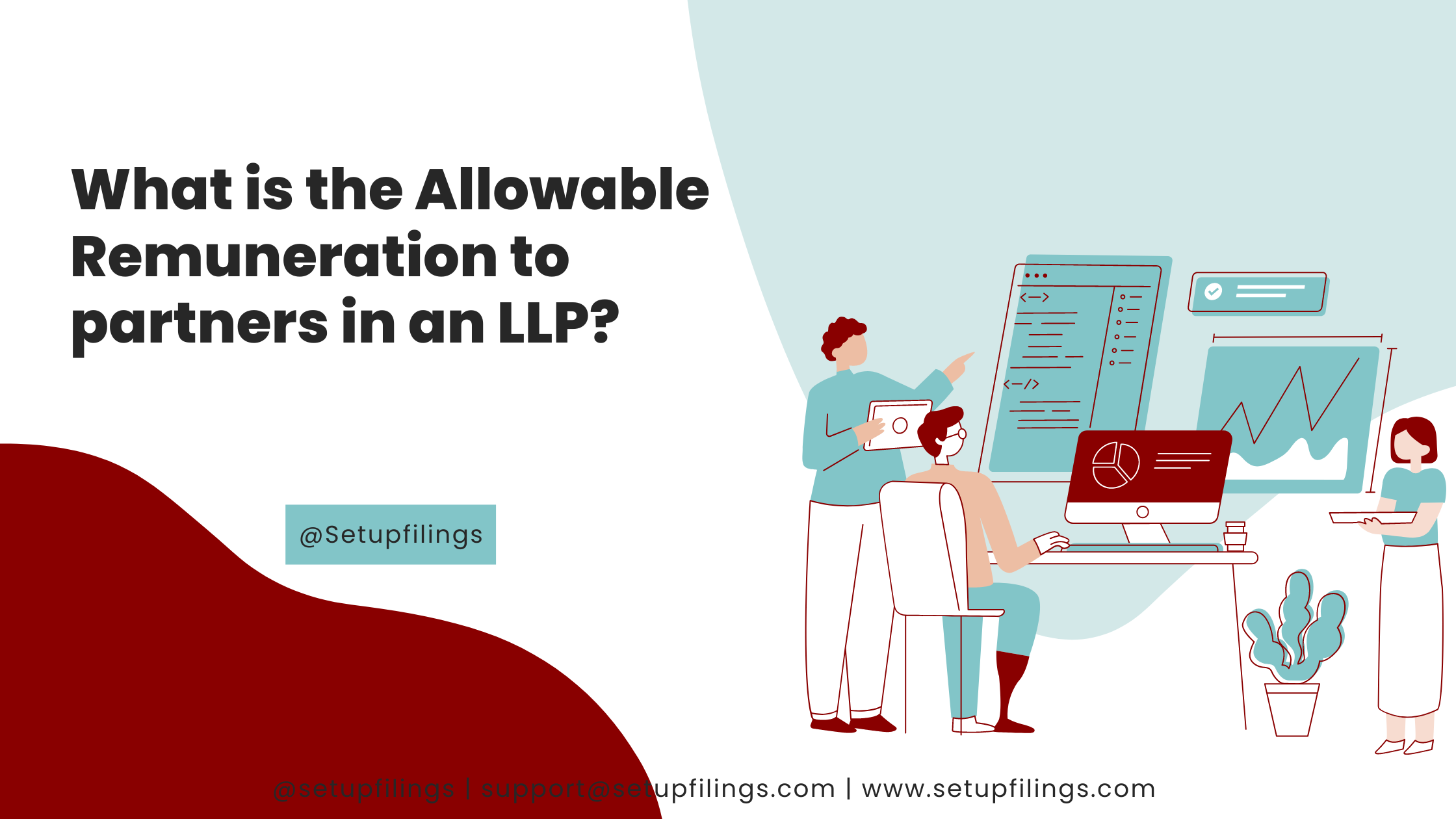
Know About the Four Types of Partnership Firm And Its Partner in India
Partnership firm is formed when two or more person decides to start a business or venture by contributing investments. When it comes to partnership, there are several different types of partnership firm and partner in India that you can choose from. Each type of partnership firm has its own set of advantages and disadvantages, so it’s important to choose the right one according to requirement.
In this blog, we will give you an overview of the different types of partnership firm and partner’s in India, so you can make a proper decision about which is right for your business.
Types of Partnership Firm
• General partnership
• Limited partnership
• Limited liability partnership
• LLC partnership
Partnership firm in India can through partnership deed, contract, mentioning business terms and condition, profit sharing ratio, risks and business operations and becomes necessary while execution of partnership deed between the partners. Though, all partnership firms are governed by Indian partnership Act 1932. In India, The Signing of such deed between partners indicated the firm of partnership firm. The breach of terms and condition give right to sue each other or third party who may harm their firm.
A partnership firm registration has multiple advantages and disadvantages; basically, the nature of the partnership decides overview of advantage and disadvantage in partnership firm. Therefore it becomes necessary to understand in depth about types of partnership firm and types of partner in India. So it becomes easier to take decision of for partners.
General Partnership
In India, General Partnership registration can be carried by two or more persons and they may decide to run their business as partner. They may or may not have an equal share in General partnership firm. The power and profit sharing will be grounded on a partnership agreement singed before commencing such a partnership.
This type of partnership firm can be formed or dissolved easily. It’s a low- cost and flexible form of partnership. In this form of partnership, the partner of firm has independent power to act has partner and agent. Still, each partner will have the total liability to bear the all the business debts/ legal obligations. Therefore, this can be a risky affair, substantially because the partners of firm are liable for their conduct and others’ conduct in firm.
Limited Partnership
Limited Partnership is a more formal and systematized form of a partnership model than the General Partnership model. There has to be at least one general partner who’ll be responsible for managing the overall business for this partnership. They bear the arrears of the business as well. On the other hand, these general partners are supported by one or further limited partners, who give the plutocrat to run the business but aren’t laboriously engaged in managing the day- to- day business.
Limited partners don’t take part in the decision- timber. They don’t need to bear the threat or partake the liabilities of running the business. Especially the silent limited partners can enjoy the gains, and/ or just in case the business runs into trouble; they risk losing the quantum they’ve invested, but not further than that. therefore, the Limited Partnership model offers legal protection to the limited partners to guard themselves from the liability of General partners. On the other hand, the General partners in Limited partnership can enjoy the overall control over the firm. Entrusted by investors, they’ve the total responsibility to run the partnership firm and have the freedom of independent decision- timber. still, they’ve the entire liability to bear the pitfalls and debts.
Limited Liability Partnership( LLP)
A Llimited liability partnership( LLP) can be explained as a creation of General Partnership and Limited Partnership. In this form of the partnership model, all the partners can laboriously manage the business. Still, they can guard themselves from taking responsibility and liability for the conduct of other partners. They’re only liable to take responsibility for their conduct. therefore, one’s asset isn’t at threat indeed if the business runs the threat of loss or debts. In such a case, each business partner will lose the plutocrat they’ve invested in the partnership firm. thus, the threat is more distributed among the partners in this form of partnership, but the business can work individual chops and moxie.
This type of partnership firm is current among professionals, like croakers
, attorneys, or accountants, who put together their moxie and coffers to run a partnership business. This generally reduces the individual cost of running the business while unleashing the possibility of participating gains without taking too important individual threat. Another significant advantage of this type of partnership firm is that the partners of the LLP form business can snappily leave or join the partnership.
LLC Partnership
A Limited Liability Company ( LLC) operates as a business reality where possessors are defended from taking any particular responsibility for the debts or arrears of that partnership firm. LLC partnership can be between two or further possessors known as members. It operates as a mongrel model, comprising the characteristics of a pot and a partnership and/ or sole procurement model of business. The rules and regulations for LLC Partnership are different from country to country.
Still, the salient point of this type of commercial structure is that individual partners are exempted from the arrears of bearing the company’s debt or other forms of legal scores. LLC, as a partnership firm, LLC isn’t needed to pay direct levies on its gains. Rather, the partners participating those gains are liable to pay duty on their income.
Types of Partners
1. Active or Working Partner
2. Dormant or Sleeping partners
3. Nominal Partner
4. Partner in gains only
5. Sub-partner
6. Minor as a partner
The partnership firm is formed with its partners and their roles and responsibility may also be changed Based on their participation and roles in the Partnership firm, and below are some types of partner in partnership firm
Active or Working Partner
This is the partner in the firm that’s actively involved in the operation and other important functional aspects of the partnership firm. Active or working partner bares unlimited liability in case of debts. An active partner decides how the firm operates with his active participation and contribution as an active or working partner in firm. In case the active partner chooses to retire from firm, then he must give a public notice of his retirement from the firm. In situations where an active partner fails to do, he’ll remain liable for the acts of other partners, post his retirement from firm. Any action taken by the active partner in ordinary course of business is binding on the firm and the partners. Subject to clause in partnership deed, the active or working partner can withdraw remuneration from the firm.
Dormant or Sleeping partners
As the name suggests a dormant partner is the one that is not interested in day to day operation or functional aspects of the partnership firm, but he may be consulted while taking major decisions for the firm. The partnership of this partner may not be known to the outlanders, but they invest in the firm by contributing a capital to the firm.
In case of a debt he’s liable to clear it out on behalf of the firm. A dormant partner isn’t needed to file a public notice to advertise his withdrawal. As he’s not sharing in the operations, he’s cannot withdraw remuneration. However, it isn’t deductible under Income Tax Act, If the partnership deed provides the clause of remuneration to sleeping partner. (Read what permissible remuneration to partners is?)
Nominal Partner
A person who doesn’t have any real interest in the business or the working of the firm nor he has any rights in the profits is a nominal partner of the firm. He also doesn’t generally have any say in the operation and working of the business, but he’s liable to outlanders as a actual partner of firm. He just lends his name to the firm, so that it could avail from his/ her advantage and name and is treated like an actual partner.
Partner by Estoppels or holding out
If people expressly declares by his words or conduct that he holds out that he is partner. Hence such a person would therefore come liable to third parties in clearing out the debts of the firm when a situation arises.
There are two essential conditions for the principle of holding out
- In Estoppels or holding out the person to be held out must have made the representation, by words spoken or written or by conduct, that he was a partner; and
- The other party must prove that he’d knowledge of the representation and acted on it, for case, gave the credit.
Partner in profits only
In certain situations, a partner joins the partnership firm with a clarification that he/ she would take part only gains as a partner and would not be liable for any losses in firm. Still, he shall be liable like all other partners since the liability of the partners is common and several. So if the firm incurs any loss and the other partners come insolvent, the third party may hold this partner liable. As the arrangement of participating only gains is an internal arrangement among the partners, the third partner may not be concerned about it. The said partner can also repay the contribution made to the third party for the arrangement.
Sub-partner
When a partner agrees to share his profits deduced from the firm with a third party, that person is known as a sub- partner in firm. He cannot represent himself as a partner in the original firm. He doesn’t have any rights against the original firm neither he’s liable for the acts of the firm. He can claim the agreed share of gains from the contracting partner only.
Minor as a partner
Partnerships are created by a mutual agreement between two or more parties which is a contract. Minors are unable of entering into contracts. But under the Indian Partnership Act, a minor can be introduced as a partner as long as it’s only to enjoy the benefits. A minor partner has access to the accounts of the firm and is entitled to share his gains. They don’t hold the right to file suit against the partners as long as he’s in the firm. Private property of the minor cannot be attached by the creditors.
Visited 360 Times, 1 Visit today




